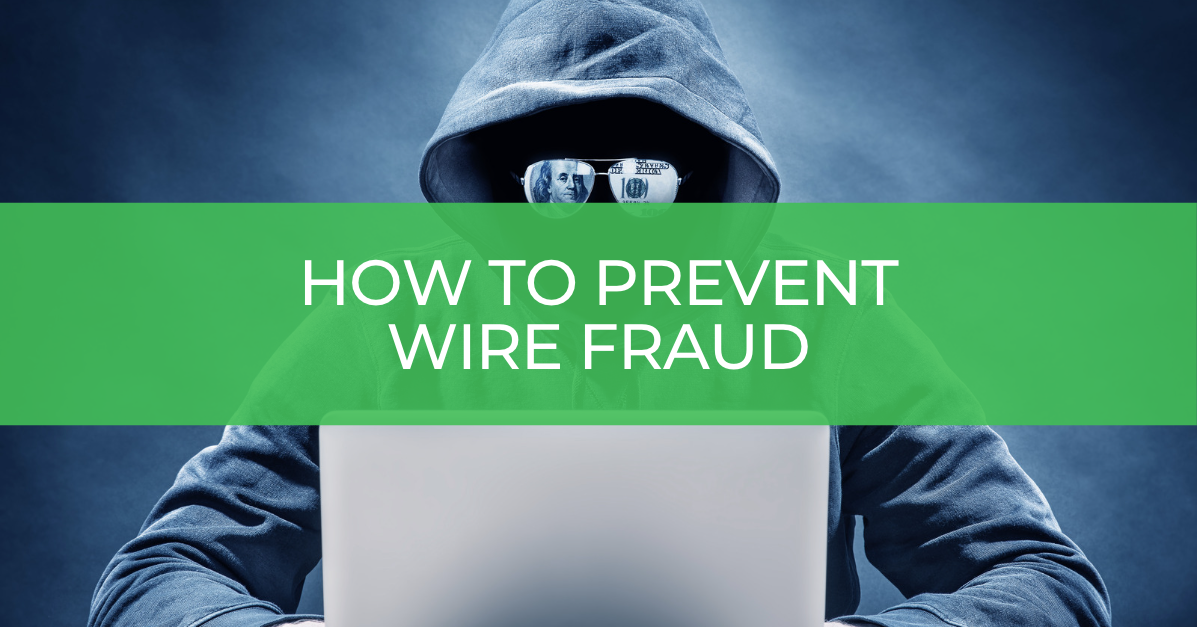
How to Prevent Wire Fraud
Wire fraud is a criminal act that involves the use of electronic communication or wire transfers to defraud someone. It typically occurs when nefarious individuals mislead others to send money electronically, such as through wire transfers.
The most common example of wire fraud we are seeing in the real estate lending industry is a phishing scam. Fraudsters send emails or messages impersonating legitimate institutions, such as Title agencies, and request wire transfers or personal information.
Seems Legit
These phishing emails are timely (a few days or weeks prior to a major financial transaction) and may resemble previous emails from involved companies. They may include the email signature information of the title representative and their company logo, even a warning in the footer about fraud! However, the email address originating the communication will typically NOT match the email address in the signature. These phishing emails can contain bogus wire information leading to a fraudulent account.
These scams have targeted homebuyers, mortgage lenders, as well as real estate development companies. Whether you receive a legitimate or fraudulent request for wire funds, pick up the phone and call a representative with known contact information. Know that if you initiate the wire from your bank, there may be little hope of recovering those funds even if the fraud is discovered quickly.
Preventing wire fraud requires a combination of caution, awareness, and proactive measures.
Here are some steps you can take to reduce the risk of falling victim to wire fraud:
- If you receive an email containing wire transfer instructions, ALWAYS call your lender and/or escrow officer immediately using known contact information to verify the information prior to sending funds.
- Safeguard your personal and financial information. Avoid sharing Social Security or bank account numbers through insecure channels like email or phone.
- Always verify the identity of individuals or organizations before sharing personal or financial information.
- Be wary of unexpected emails, phone calls, or messages requesting money or sensitive information.
- Stay informed about common fraud techniques and scams, particularly those involving wire transfers. Educate yourself on how to identify and handle suspicious requests.
- Protect your online accounts and devices. Use strong, unique passwords for each account, enable two-factor authentication when possible, keep your software/antivirus programs up to date, and exercise caution when clicking on links or downloading attachments.
- Regularly review financial statements for unauthorized transactions or suspicious activity. If you notice anything unusual, contact your financial institution immediately.
- Report suspected fraud: If you suspect that you have been targeted, report it to your local law enforcement agency and the appropriate authorities in your country, as well as the FBI. Prompt reporting increases the chances of recovering lost funds and helps prevent others from becoming victims.
Remember, staying vigilant and skeptical, along with maintaining strong security measures, are key to preventing wire fraud.
Contact E5 Home Loans for any questions or to learn more about the home buying process from pre-qualifying to closing. Even if you have previously been denied a pre-qualification, get a Second Opinion with E5 Home Loans. E5 shops loan products across many lenders and we don’t charge a bunch of crazy fees.
